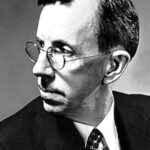Paul Ehrlich (14 March 1854 – 20 August 1915) was a German physician and scientist who made significant contributions to the fields of hematology, immunology, and chemotherapy. He is considered one of the most important scientists of the 20th century and his work continues to influence research in these fields today.
Life and Career
He was born on 14 March 1854, in Strzelin, Poland. He attended the classical Gymnasium in Frankfurt, Germany, where he received a rigorous education in Greek, Latin, mathematics, and natural sciences. In 1872, Ehrlich enrolled in the University of Strasbourg to study medicine, where he was mentored by the renowned microbiologist Robert Koch. Ehrlich received his medical degree from the University of Leipzig in 1878.
After completing his medical degree, he spent several years working in various hospitals and clinics, including the Charité Hospital in Berlin, where he specialized in pathology and internal medicine. His research also led to the development of the modern concept of the immune system, including the idea of “self” and “non-self” recognition. He was one of the first scientists to use staining techniques to identify different types of blood cells, which helped to lay the foundation for the field of hematology.
In addition to his work on immunology, Ehrlich was also a pioneer in the field of chemotherapy, the use of chemicals to treat disease. He developed a compound called “salvarsan” to treat syphilis, which was one of the first successful treatments for the disease. In 1885, Ehrlich was appointed director of the newly established Institute of Experimental Therapy in Frankfurt, where he conducted his pioneering research on immunology and chemotherapy. He worked at the institute for the rest of his life.
Throughout his education and career, Ehrlich was a prolific writer, publishing numerous papers and books on a wide range of topics in medicine, including immunology, pharmacology, and chemotherapy. He died on 20 August 1915, in Bad Homburg, Hesse, German Empire.
Award and Legacy
Ehrlich was awarded the Nobel Prize in Physiology or Medicine in 1908 for his contributions to immunology and chemotherapy.
Observer Voice is the one stop site for National, International news, Editor’s Choice, Art/culture contents, Quotes and much more. We also cover historical contents. Historical contents includes World History, Indian History, and what happened today. The website also covers Entertainment across the India and World.










